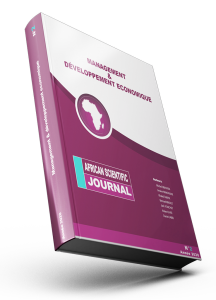Fiscal Decentralization and Economic Growth in Morocco: Theoretical Framework, Current Situation, and Analysis of Stylized Facts
DOI:
https://doi.org/10.5281/zenodo.15098762Keywords:
Fiscal decentralization, Local finances, Local authorities, Financial autonomy, Regional disparities.Abstract
Abstract
Fiscal decentralization aims to strengthen the financial autonomy of local governments by granting them greater control over their own resources and improving their management capacities. In Morocco, this process is sustained by an evolving legal and institutional framework, with ongoing reforms seeking to enhance the efficiency of local finances. This article explores the theoretical foundations of fiscal decentralization, drawing on the seminal works of Tiebout, Oates, and Musgrave, and examines its practical application in the Moroccan context. Through a combination of qualitative analysis and empirical data, the study identifies key challenges, including regional disparities in resource allocation, heavy reliance on state transfers, and institutional constraints. The article concludes by emphasizing the urgent need for comprehensive reforms to bolster the financial capacities of local governments, promote equitable resource distribution, and ensure sustainable development. These reforms should focus on diversifying revenue sources, improving local tax collection, and fostering inter-municipal cooperation, while addressing regional inequalities through effective solidarity mechanisms.
Keywords: Fiscal decentralization, Local finances, Local authorities, Financial autonomy, Regional disparities.
Downloads
Published
How to Cite
Issue
Section
License
Copyright (c) 2025 African Scientific Journal

This work is licensed under a Creative Commons Attribution-NonCommercial-NoDerivatives 4.0 International License.





















